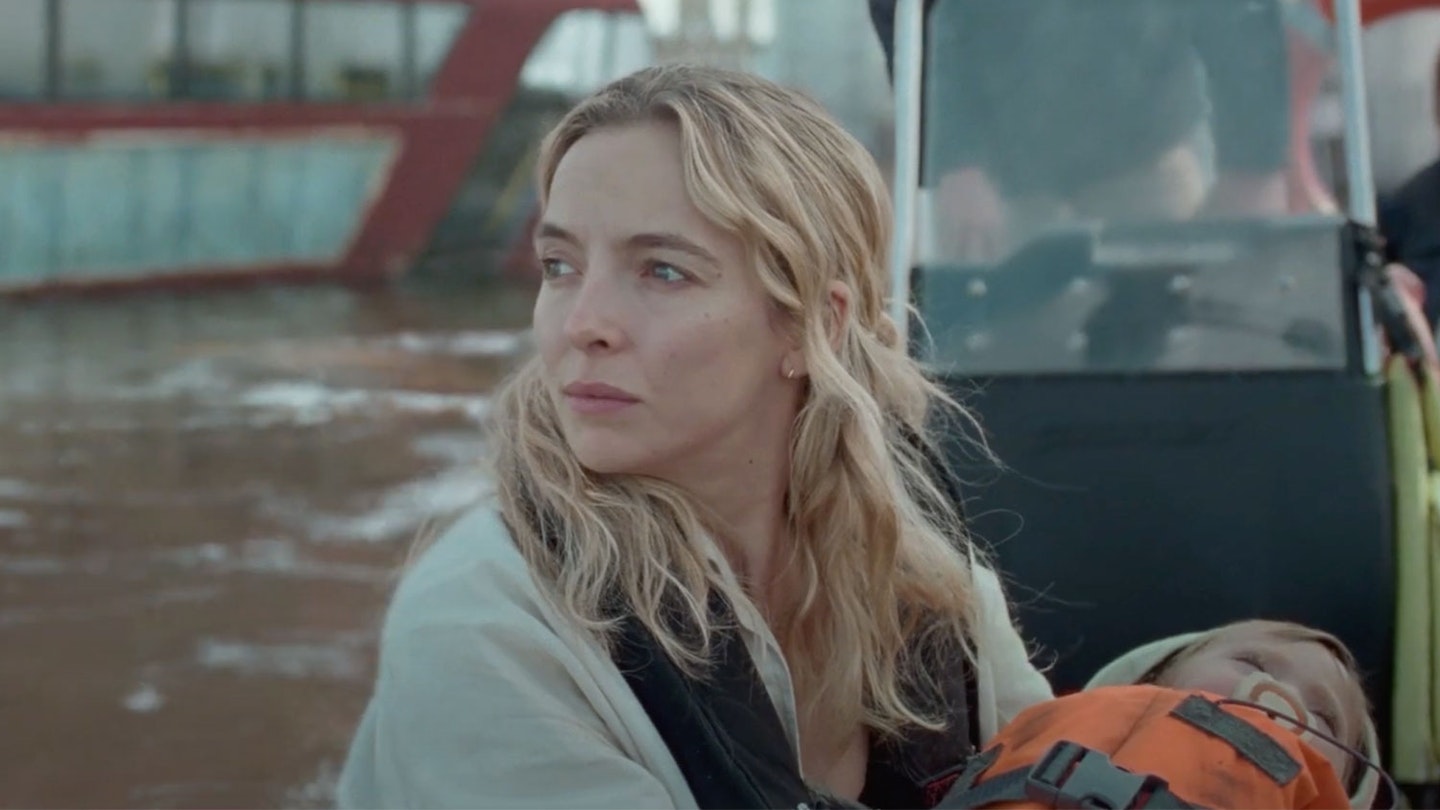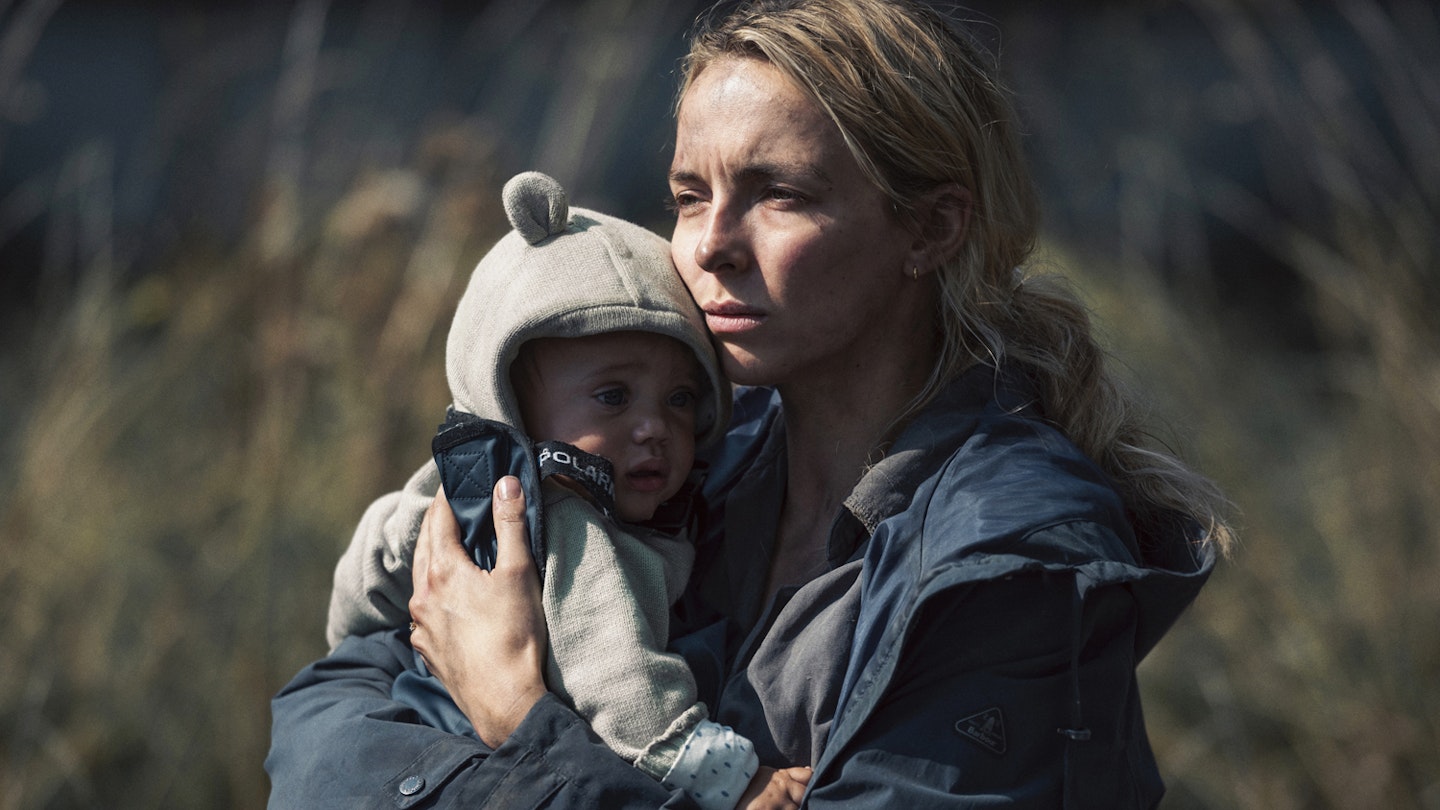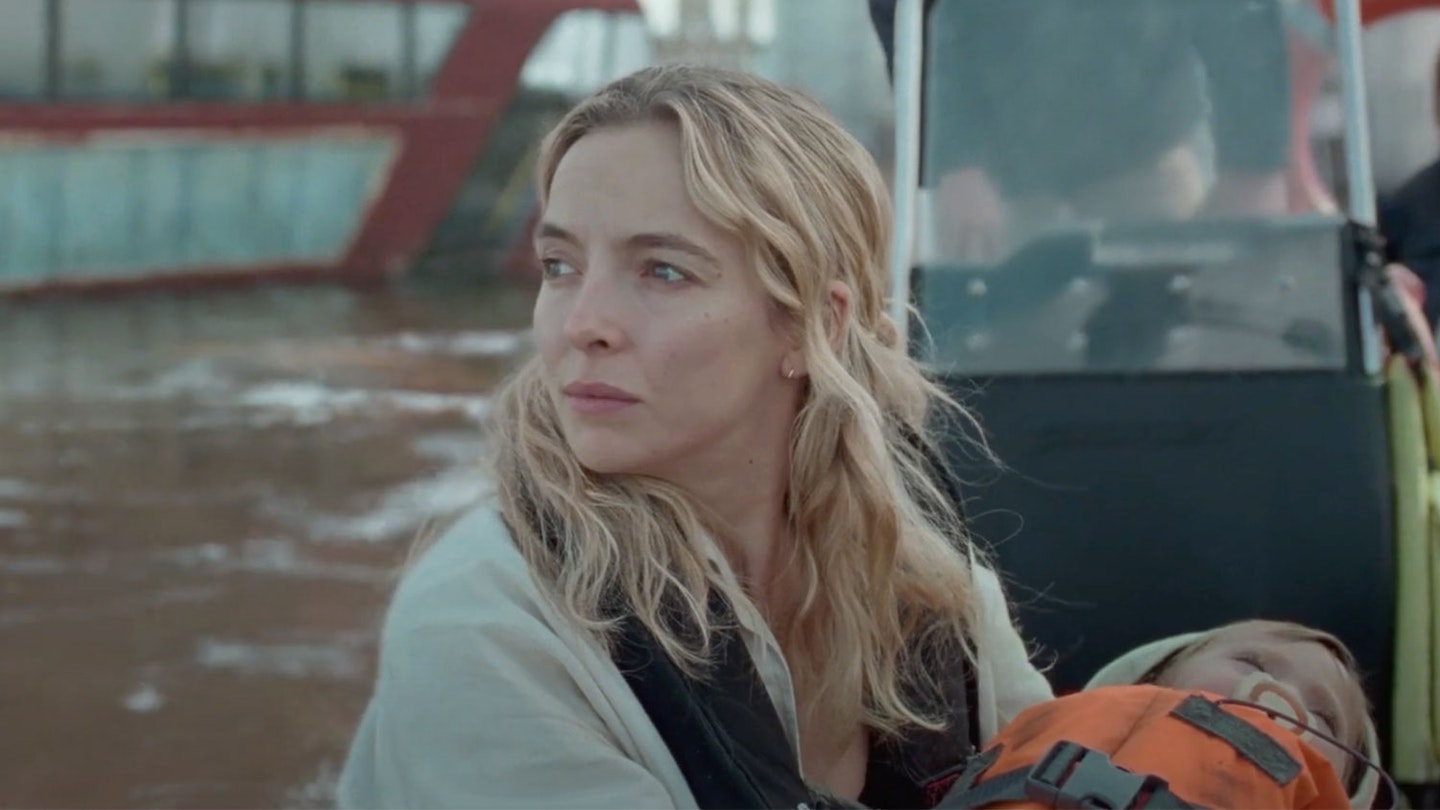It might be the end of the world, but someone has to change the babies’ nappies. Based on Megan Hunter’s acclaimed novella, The End We Start From is not your typical apocalyptic story. At times an unnervingly realistic vision of what the UK overwhelmed by flooding might look like in the not-so-distant future, this armageddon functions as both an acknowledgement of women’s under-appreciated work as caregivers and a metaphor for the emotional upheaval of new parenthood.

Set in what appears to be the present day, the film begins with an impressive sequence of a heavily pregnant young woman (Jodie Comer, credited only as ‘Mother’) rushed to hospital just as flood-water bursts into her home. The wonder of birth is cut brutally short: along with her partner (Joel Fry, credited only as ‘R’), Mother and son join the hordes fleeing London, taking shelter in the in-laws’ countryside home.
Jodie Comer is, of course, excellent.
Initially, it’s like an upper middle-class vision of early lockdown: no work, hoarded tins of food proving useful, a sense of impending doom. But soon tragedy strikes, the couple are separated, and Mother and baby have to fight for survival, journeying through forests and moorland with fellow mother O (Katherine Waterston).
Comparisons with Children Of Men are inevitable, but The End We Start From is far less engaged with politics, particularly racial, and tiptoes around its own timeliness. Perhaps screenwriter Alice Birch, who adapted Normal People and Dead Ringers, trusts us to find parallels with the climate and refugee crises by ourselves. But compared to the uncompromising, post-9/11 imagery of Children Of Men it feels rather toothless. Jodie Comer is, of course, excellent, though ironically in what is apparently an intentionally feminist film, we don’t learn much about her character besides being a mother and romantic partner.

